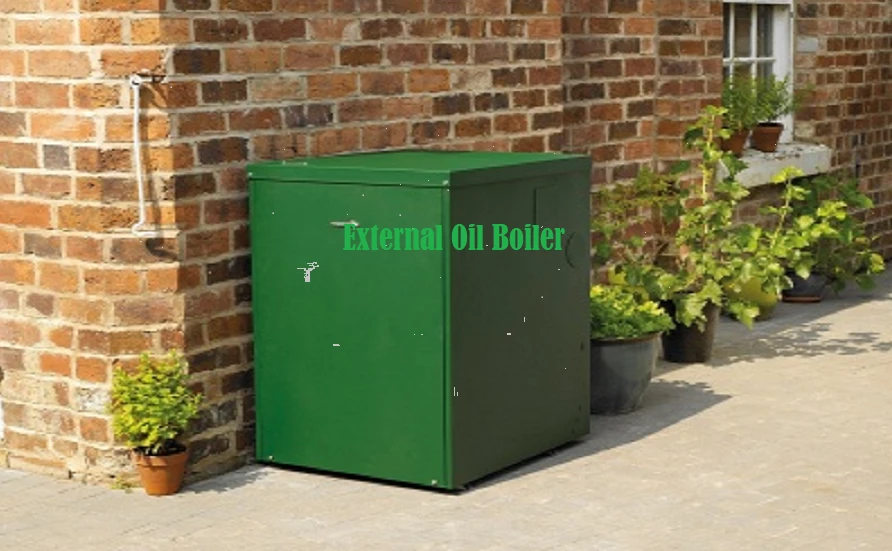| Note: This article may contain affiliate links, which means if you make a purchase following our links won’t cost you extra, but we may earn a commission. Learn more |
Placing boilers outside means there’s a reduced risk to your property in the event of a leak. This positioning can also free up valuable space inside your home.
Oil, as a fuel, tends to be more efficient than gas, providing a better energy return. Another significant benefit of having the boiler outside is the elimination of carbon monoxide risks within the home.
The difference between an internal and external oil boiler lies in their installation location; the latter is set up outdoors. This outdoor setup ensures that any noise generated by the boiler doesn’t disturb the household, eliminating noise pollution concerns.
On the flip side, an external oil condensing boiler might experience some heat loss due to its outdoor location. This could slightly reduce its efficiency, especially in colder climates. In terms of expenses, the external oil boiler cost might be higher initially, but the long-term benefits, such as space-saving and safety, often justify the investment.
External Oil Boiler Mechanics
External oil boilers are designed to provide efficient heating solutions for homes and buildings.
These boilers operate by burning oil to produce heat, which is then transferred to water. The heated water circulates through radiators or underfloor heating systems, providing warmth throughout the property.
Being external, these boilers are installed outside the main building, typically in a weatherproof casing to protect against the elements.
Evaluating the Worth of External Oil Boilers
Compared to other heating systems, external oil boilers offer several distinct advantages. Their outdoor placement means they don’t occupy valuable indoor space.
Being outside, they pose no carbon monoxide risk to the home’s inhabitants. Yet, initial installation costs might be higher than their internal counterparts.
Over time, the efficiency and safety benefits often outweigh these initial costs, making them a worthy investment for many homeowners.
Top Benefits of External Oil Boilers
Space Efficiency: By being outside, they free up indoor space, which can be used for other purposes.
Safety: Positioned outdoors, they eliminate the risk of carbon monoxide poisoning inside the home.
Noise Reduction: Any operational noise is confined outside, ensuring a quieter living environment.
Efficient Fuel: Oil is often more efficient than gas, offering better energy returns.
Pros and Cons of Using External Oil Boilers
Pros:
- Outdoor placement reduces property damage risk from leaks.
- No indoor noise pollution.
- Eliminates carbon monoxide risks within the home.
Cons:
- Potential for heat loss due to outdoor location.
- Initial installation costs might be higher.

Common Questions About External Oil Boilers
What maintenance do external oil boilers require?
Routine checks and annual servicing by professionals ensure optimal performance and longevity.
How long do external oil boilers last?
With proper maintenance, they can last up to 15 years or more.
Are they environmentally friendly?
While oil is not as clean as renewable energy sources, modern boilers are designed to be more efficient and eco-friendly.
Can they withstand harsh weather conditions?
Yes, they come in weatherproof casings designed to endure various climatic conditions.
Is the oil supply consistent for these boilers?
Oil delivery services are widespread, ensuring a consistent supply for homeowners.
Do they require a separate storage tank?
Yes, a separate oil tank is needed, which can be placed underground or above ground.
Are there any grants available for installing external oil boilers?
Many regions offer incentives or grants for energy-efficient heating systems. It’s advisable to check local programs.
Final Word
Considering the benefits and drawbacks of external oil boilers, they emerge as a viable heating solution for many. Their space efficiency, safety features, and noise reduction capabilities make them particularly appealing. While there are initial costs and potential heat loss concerns, the long-term advantages often make them a preferred choice for homeowners seeking efficient and safe heating solutions.
